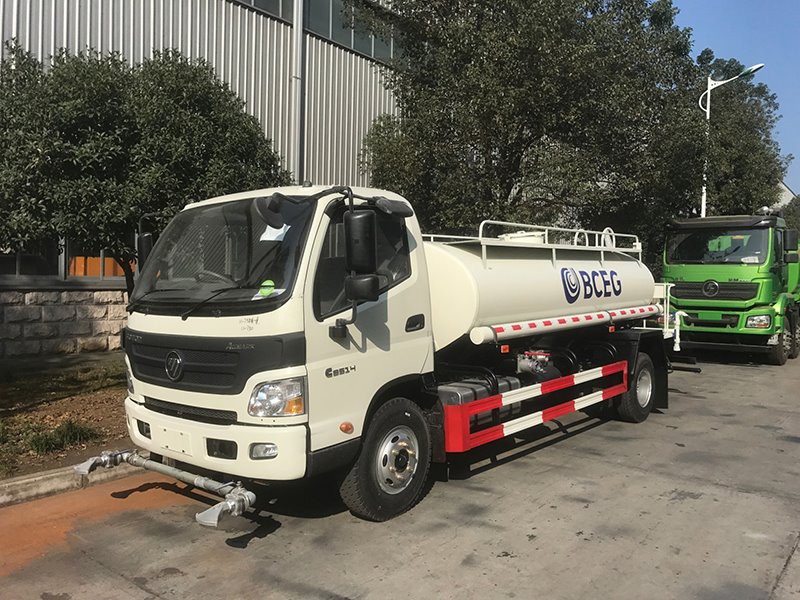Introduction
Temperature controlled trucks play a crucial role in the logistics industry, ensuring that temperature-sensitive products, such as pharmaceuticals, food, and chemicals, are transported under optimal conditions. These specialized vehicles are designed to maintain a consistent temperature throughout their journey, preventing spoilage and ensuring product integrity. In this article, we will explore the different types of temperature-controlled trucks, their applications, benefits, and more, all aimed at helping you understand this vital component of the supply chain.
What are Temperature Controlled Trucks?
Temperature controlled trucks, also known as reefer trucks or refrigerated trucks, are equipped with a refrigeration system that regulates the internal temperature. These trucks are crucial for transporting goods that require specific temperature ranges, such as:
- Perishable food items (fruits, vegetables, dairy products)
- Pharmaceuticals (vaccines, insulin)
- Chemicals (industrial products that need cooling)
The Importance of Temperature Control in Logistics
The logistics industry has seen significant advancements in the use of temperature control. Maintaining proper temperature is essential for several reasons:
- Food Safety: Keeping food at the correct temperature reduces the risk of foodborne illnesses.
- Product Integrity: Many pharmaceuticals lose their effectiveness if not stored at specific temperatures.
- Compliance: Regulations in various industries mandate specific temperature requirements during transportation.
Types of Temperature Controlled Trucks
There are various types of temperature-controlled trucks, each designed for specific needs. Understanding these types can help businesses choose the right vehicle for their needs.
Reefer Trucks
Reefer trucks are the most common type of temperature controlled trucks. They feature insulation and a refrigeration unit that maintains a consistent cool temperature. Reefer trucks come in various sizes, making them suitable for small loads to large shipments.
Insulated Vans
Insulated vans offer a more cost-effective solution for transporting temperature sensitive goods over shorter distances. While they do not have active cooling systems, they provide sufficient insulation to maintain temperatures for several hours, making them suitable for deliveries such as dairy and bakery products.
Multi-Temperature Trucks
Multi-temperature trucks are versatile vehicles designed with separate compartments that can maintain different temperature zones simultaneously. This allows for mixed loads of items requiring different storage conditions.
Applications of Temperature Controlled Trucks
Temperature controlled trucks serve various industries, ensuring that products remain safe and effective during transportation. Here are some key applications:
Food Industry
In the food industry, temperature control is vital for transporting perishable goods. Reefer trucks are commonly used to transport:
- Fresh produce
- Meat and poultry
- Dairy products
For example, transporting fish requires temperatures below freezing to preserve freshness.
Pharmaceutical Industry
The pharmaceutical industry relies heavily on temperature-controlled logistics to ensure that medications retain their effectiveness. Vaccines, for instance, need to be stored between 2°C and 8°C to ensure maximum efficacy during transportation.
Chemical Industry
Certain chemicals require specific temperature environments to prevent reactions or degradation. For instance, some industrial lubricants need to be stored at controlled temperatures to maintain their viscosity.
Benefits of Using Temperature Controlled Trucks
The advantages of utilizing temperature controlled trucks go beyond compliance and product safety. Key benefits include:
Preservation of Product Quality
Temperature-controlled transport helps maintain the quality of goods, reducing spoilage rates and ensuring products arrive in the best possible condition.
Increased Shelf Life
Proper temperature management can extend the shelf life of perishable items, leading to lower waste and better profitability for businesses.
Regulatory Compliance
Many industries are subject to stringent regulations regarding the transportation of temperature-sensitive products. Using temperature-controlled trucks helps ensure compliance with these regulations.
Challenges in Temperature Controlled Logistics
Despite their many advantages, temperature controlled logistics also presents several challenges:
Cost Management
The cost of purchasing, operating, and maintaining temperature-controlled trucks can be significant. Businesses need to analyze their supply chain to find cost-effective solutions.
Technological Integration
Keeping up with the latest technologies in temperature monitoring and tracking can be complex. Companies must invest in upgrades and new systems to maintain their competitive edge.
Driver Training
Drivers operating temperature-controlled trucks require specialized training to understand the systems and best practices for managing temperature-sensitive goods during transport.
Tips for Choosing a Temperature Controlled Truck
Choosing the right temperature-controlled truck should consider several factors:
Assess Your Needs
Identify the types of products you will be transporting and their specific temperature requirements. This will help you determine the appropriate truck type and configuration.
Consider the Size
Choose a truck size that fits your shipping volume effectively. Oversized trucks can lead to unnecessary costs, while undersized vehicles can compromise delivery efficiency.
Technology Features
Look for trucks equipped with the latest temperature monitoring systems. Advanced features such as real-time temperature tracking can help ensure compliance and product integrity.
Frequently Asked Questions (FAQ)
1. How does a temperature controlled truck work?
A temperature controlled truck uses a refrigeration system to maintain specific temperatures for sensitive cargo. The vehicle is insulated to prevent external temperature influences.
2. What temperature range does a reefer truck maintain?
Reefer trucks can maintain temperatures ranging from -20°C to +20°C, allowing them to cater to a diverse range of temperature-sensitive products.
3. How can I ensure compliance with temperature regulations during transport?
Utilize temperature monitoring systems that provide real-time data during transportation and maintain records to demonstrate compliance with industry regulations.
4. What are the best practices for loading a temperature controlled truck?
Always pre-cool the truck before loading, avoid overpacking to facilitate proper air circulation, and ensure that products are loaded at the correct temperatures.
5. Are there specific certifications for temperature controlled transport?
Yes, various industries have set certifications related to temperature-controlled transport, like Good Distribution Practice (GDP) for pharmaceuticals.
6. What maintenance is required for temperature controlled vehicles?
Regular maintenance of the refrigeration unit, insulation, and vehicle servicing is essential to ensure the proper operation of temperature-controlled trucks.
Conclusion
Understanding the functionality and importance of temperature controlled trucks can help businesses optimize their logistics strategy, ensuring the safe transport of temperature-sensitive goods. By selecting the right type of vehicle, embracing technological advancements, and adhering to best practices, companies can significantly enhance their supply chain and customer satisfaction.





